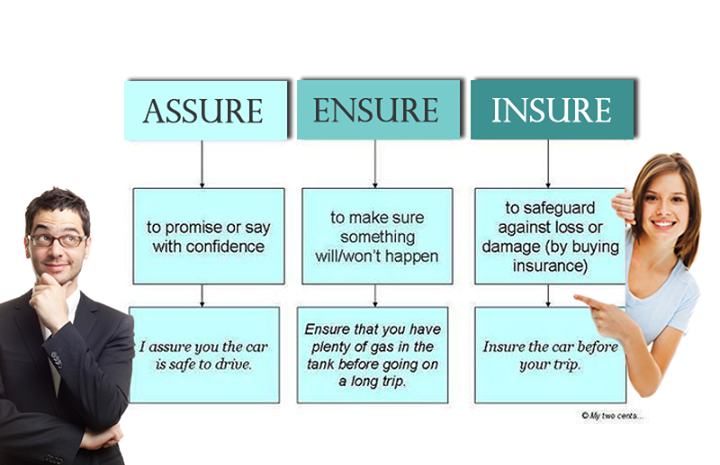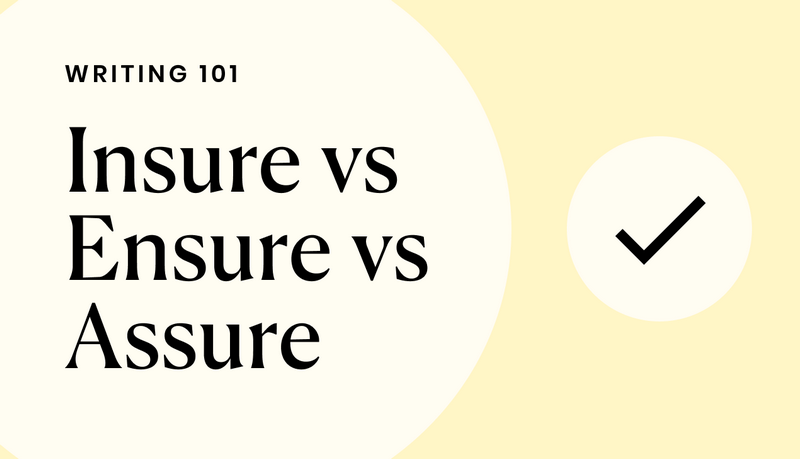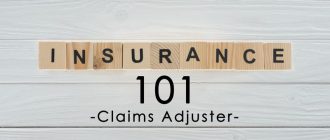
The Key Differences Between Insurance Assessors and Adjusters.
Assessors and adjusters play crucial roles in the insurance industry, but they have distinct responsibilities and areas of expertise. Understanding the key differences between assessors and adjusters is essential for policyholders who need to navigate the claims process.
An insurance assessor is responsible for evaluating the value of a loss or damage covered by an insurance policy. They assess the extent of the damage, investigate the circumstances surrounding the claim, and determine the amount that the insurer should pay. Assessors typically work independently and are hired by the insurer or an insurance company.
An adjuster, on the other hand, is responsible for managing the entire claims process. They investigate the circumstances of a claim, review the policy details, assess the extent of the damage or loss, and negotiate a settlement with the policyholder. Adjusters work directly for the insurance company and are often the point of contact for policyholders throughout the claims process.
While both assessors and adjusters are involved in the claims process, their roles and responsibilities differ significantly. Assessors focus on determining the value of the loss or damage, while adjusters manage the entire claims process from start to finish.
Who are Insurance Assessors?
In the insurance industry, there are two key roles involved in the claims process: insurance assessors and adjusters. While both are responsible for assessing and evaluating insurance claims, there are some key differences between the two.
Insurance assessors are professionals who are hired by insurance companies or independent firms to inspect and evaluate property damage or loss. They work closely with policyholders to gather information, assess the extent of the damage, and determine the value of the claim. Assessors are typically experts in specific areas, such as property damage, auto accidents, or personal injury.
One of the key differences between insurance assessors and adjusters is that assessors focus primarily on evaluating the damage and determining the value of the claim. They use their expertise to assess the physical and financial impact of the loss, considering factors such as the cost of repairs or replacement, the age and condition of the property, and any relevant policy limits or exclusions.
Insurance assessors often work independently, conducting site visits and inspections to gather evidence and gather information. They may interview witnesses or consult with experts to obtain a comprehensive understanding of the loss. Based on their findings, assessors prepare detailed reports that outline their assessment and provide recommendations for the settlement of the claim.
While insurance assessors primarily focus on assessing and evaluating claims, insurance adjusters perform a wider range of tasks. Adjusters are typically employed by insurance companies and are responsible for managing the entire claims process, from initial investigation to the final settlement. In addition to assessing the damage, adjusters also negotiate settlements, investigate policy coverage, and liaise with policyholders and other relevant parties.
In summary, insurance assessors play a crucial role in the insurance claims process. They are experts who assess and evaluate property damage or loss, determining the value of the claim. While insurance adjusters have a wider range of responsibilities, insurance assessors specialize in assessing and evaluating claims, providing detailed reports that help facilitate the settlement process.
Who are Insurance Adjusters?
Insurance adjusters are key individuals in the insurance industry who play a crucial role in the claims process. They are professionals who are tasked with assessing the validity and extent of insurance claims, determining the amount of compensation that should be provided to policyholders, and negotiating settlement agreements.
Unlike insurance assessors, who primarily focus on determining the value of insured assets or losses, insurance adjusters have a broader scope of responsibilities. They not only evaluate the damages and losses, but also investigate the circumstances surrounding the claim to determine if it falls within the terms and conditions of the insurance policy.
Insurance adjusters must possess strong analytical and investigative skills to accurately assess claims. They often visit the site of the incident, interview witnesses, gather evidence, and review relevant documentation to make informed decisions. They also work closely with policyholders, insurance companies, and other parties involved in the claims process to ensure a fair resolution.
Insurance adjusters act as mediators between policyholders and insurance companies, advocating for their clients while also adhering to the policies and guidelines set by their employers. They need to be knowledgeable about insurance laws and regulations, as well as the specific policies they are handling, in order to provide accurate assessments and negotiate fair settlements.
In summary, insurance adjusters are essential members of the insurance industry who assess and evaluate insurance claims, negotiate settlements, and ensure that policyholders receive fair compensation. While their roles may overlap with insurance assessors to some extent, insurance adjusters have a wider range of responsibilities and play a more comprehensive role in the claims process.
Duties of Insurance Assessors
Insurance assessors play a crucial role in the insurance industry. They are responsible for assessing and evaluating the value of a claim to determine the appropriate amount of compensation to be provided to the policyholder.
Some of the key duties of insurance assessors include:
- Assessing the damage or loss incurred by the policyholder and taking detailed notes and photographs to support their findings.
- Inspecting the property or vehicle involved in the claim, evaluating its condition, and determining if the damage resulted from a covered event.
- Reviewing insurance policies and documentation to understand the coverage and limitations that apply to the claim.
- Interviewing the policyholder and any other involved parties to gather information and statements regarding the claim.
- Negotiating with repair shops, contractors, or other service providers to obtain estimates for the cost of repairing or replacing the damaged property.
- Analyzing all gathered information and evidence to assess the liability and determine the appropriate compensation amount.
- Preparing detailed reports and documentation to support their findings and recommendations.
- Presenting their findings and recommendations to insurance adjusters or other relevant parties.
- Collaborating with insurance adjusters and other professionals to resolve any disputes or disagreements regarding the claim.
- Staying up to date with industry regulations, trends, and best practices to ensure accurate assessment and evaluation of claims.
Overall, insurance assessors play a critical role in ensuring fair and accurate claim settlements. Their attention to detail, investigative skills, and knowledge of insurance policies and regulations are instrumental in assessing and determining the value of insurance claims.
Duties of Insurance Adjusters
Insurance adjusters have key responsibilities in the insurance industry. Their main duty is to evaluate and investigate insurance claims. They are responsible for determining the extent of insurance coverage and the amount of compensation that should be provided.
An insurance adjuster’s job starts with reviewing and analyzing insurance policies to understand the terms and conditions of coverage. They then conduct thorough investigations to gather information regarding the accident or incident that led to the claim. This includes interviewing witnesses, obtaining police reports, and collecting any other necessary evidence.
Once all the necessary information is collected, insurance adjusters evaluate the damages or losses. They assess the value of property damage, bodily injuries, or any other covered losses based on their investigation and knowledge of insurance policies. This assessment is essential to determine the appropriate amount of compensation to be provided.
In addition to assessing damages, insurance adjusters also negotiate with claimants or policyholders on behalf of the insurance company. They aim to reach a fair settlement that satisfies both parties. This involves analyzing the value of the claim and making informed decisions based on the policy terms and coverage limitations.
Insurance adjusters also play a crucial role in fraud detection. They are responsible for identifying any suspicious or fraudulent claims. This requires them to carefully review the provided evidence, interview witnesses, and consult experts when necessary. If they suspect fraud, adjusters may escalate the case for further investigation by law enforcement agencies.
Overall, insurance adjusters act as the primary point of contact between policyholders and insurance companies. They ensure that claims are handled efficiently and fairly, balancing the interests of both parties. Their duties involve thorough investigation, evaluation of damages, negotiation, and fraud detection.
Qualifications of Insurance Assessors
Insurance assessors are professionals who are responsible for evaluating the extent of damage and determining the amount of compensation to be paid by insurance companies. They play a crucial role in the insurance claim process and need to have certain qualifications and skills.
Here are some key qualifications that insurance assessors should possess:
- Knowledge of insurance policies: Insurance assessors need to have a strong understanding of insurance policies, including the terms and conditions, coverage limits, and exclusions. This knowledge allows them to accurately assess the damage and determine if it is covered by the policy.
- Technical expertise: Assessing the damage requires technical knowledge in various areas such as construction, engineering, or automotive. Insurance assessors need to be proficient in these areas to accurately evaluate the damage and estimate the repair costs.
- Communication skills: Insurance assessors often need to communicate with policyholders, insurance company representatives, and other parties involved in the claim process. Strong communication skills are essential for effectively conveying information and negotiating settlement amounts.
- Attention to detail: Assessing the extent of damage requires careful observation and attention to detail. Insurance assessors need to be meticulous in their evaluation process to avoid overlooking any important factors that may affect the claim.
- Analytical skills: Insurance assessors must be able to analyze complex data, such as repair estimates and policy terms, to make informed decisions on claim settlements. Strong analytical skills allow them to assess the situation objectively and fairly.
- Continuing education: The insurance industry is constantly evolving, and assessors need to stay updated with the latest changes in policies, regulations, and technologies. Continuing education and professional development are crucial for insurance assessors to maintain their knowledge and skills.
While assessors and adjusters both play important roles in the insurance claim process, insurance assessors specialize in evaluating and assessing the damage, while adjusters focus on negotiating the settlement amount. The qualifications of insurance assessors reflect the technical expertise and knowledge required to accurately evaluate the damage and provide fair compensation to policyholders.
Qualifications of Insurance Adjusters
Insurance adjusters play a vital role in the insurance industry. They are responsible for assessing and evaluating insurance claims to determine the extent of the loss and the appropriate compensation to be provided. To become an insurance adjuster, certain qualifications and skills are required.
First and foremost, insurance adjusters must have a strong knowledge and understanding of the insurance industry. This includes knowledge of insurance policies, claims procedures, and relevant laws and regulations. A deep understanding of the various types of insurance, such as property and casualty insurance, is also essential.
In addition to industry knowledge, insurance adjusters must possess excellent investigative and analytical skills. They need to be able to gather and evaluate evidence, analyze documents and reports, and determine the cause and extent of the loss. Strong attention to detail and the ability to interpret complex information are crucial.
Effective communication skills are also essential for insurance adjusters. They must be able to communicate clearly and concisely both orally and in writing. This includes preparing detailed reports, negotiating settlements, and explaining complex concepts to policyholders.
Insurance adjusters often work independently and must be self-motivated and able to manage their time effectively. They must be able to handle multiple cases simultaneously and meet deadlines. Problem-solving skills and the ability to make sound judgments are also crucial in this role.
In terms of qualifications, most insurance companies require adjusters to have a bachelor’s degree in a relevant field such as business, finance, or law. Some companies may also require professional certifications, such as the Associate in Claims (AIC) or Chartered Property Casualty Underwriter (CPCU) designation.
In summary, insurance adjusters play a critical role in the insurance industry and must possess the key qualifications and skills necessary to assess and evaluate insurance claims effectively. A strong knowledge of the industry, excellent investigative and analytical skills, effective communication abilities, and the ability to work independently are all essential for success in this profession.
Skills Required for Insurance Assessors

Insurance assessors are professionals who play a key role in the insurance industry. They are responsible for assessing and evaluating insurance claims to determine the extent of the loss and the coverage provided by the policy. In order to effectively perform their job, insurance assessors require a specific set of skills.
Here are some key skills required for insurance assessors:
- Analytical skills: Insurance assessors must have strong analytical skills to carefully review and analyze all the relevant information and documentation related to an insurance claim.
- Attention to detail: Assessing insurance claims requires a high level of attention to detail to ensure accuracy and completeness in documenting the loss and assessing the coverage.
- Knowledge of insurance policies: Insurance assessors need to have a thorough understanding of insurance policies and coverage options to accurately assess the claim and determine the extent of the loss.
- Communication skills: Effective communication is crucial for insurance assessors to interact with policyholders, agents, and other professionals involved in the claims process.
- Negotiation skills: Insurance assessors often need to negotiate with policyholders and other parties to reach a fair and reasonable settlement for the claim.
- Time management: Assessing insurance claims requires handling multiple cases simultaneously and meeting strict deadlines, so good time management skills are essential.
- Computer skills: Insurance assessors need to be proficient in using computer software and tools to process claims, generate reports, and communicate with others involved in the claims process.
Overall, insurance assessors need to possess a combination of technical knowledge, analytical skills, and interpersonal skills to effectively assess and evaluate insurance claims. Their key role in the insurance industry helps ensure that policyholders receive fair and accurate compensation for their losses.
Skills Required for Insurance Adjusters
Insurance adjusters play a vital role in the insurance industry, and they need a unique set of skills to excel in their job. While there are similarities between insurance assessors and adjusters, there are also key differences in the skills required.
One of the most important skills for insurance adjusters is excellent communication. They need to be able to effectively communicate with policyholders, assessors, and other professionals in the industry. This includes not only strong verbal communication skills, but also the ability to write detailed reports and documentation.
Another crucial skill for insurance adjusters is analytical thinking. They need to be able to analyze complex situations and information to determine the best course of action. This involves evaluating policy coverage, assessing damages, and making fair and accurate determinations.
Attention to detail is also essential for insurance adjusters. They must carefully review all aspects of a claim, including policy documentation, witness statements, and evidence, to ensure nothing is overlooked. This attention to detail helps prevent fraudulent claims and ensures that policyholders receive the appropriate amount of compensation.
Additionally, insurance adjusters need strong negotiation skills. They often have to negotiate settlements with policyholders, contractors, and other involved parties. This requires the ability to advocate for the insurance company while also considering the needs and interests of the policyholder.
Lastly, empathy is an important skill for insurance adjusters. They often deal with policyholders who have experienced damages or losses, and being able to understand and empathize with their situation can help build trust and rapport. Empathy also plays a role in accurately assessing and understanding the impact of a loss on the policyholder’s life.
In conclusion, insurance adjusters require a diverse skill set to effectively carry out their responsibilities. Excellent communication, analytical thinking, attention to detail, negotiation skills, and empathy are all vital skills for insurance adjusters to ensure successful claims handling and customer satisfaction.
Key Similarities Between Assessors and Adjusters
Although there are key differences between insurance assessors and adjusters, they also share some similarities in their roles and responsibilities within the insurance industry.
1. Expertise in insurance: Both assessors and adjusters must have a deep understanding of insurance policies, coverage, and claims processes. They need to be familiar with the various types of insurance, such as property, auto, and liability insurance, and know how to assess claims accurately.
2. Investigation skills: Both assessors and adjusters are responsible for investigating insurance claims. They need to gather evidence, interview witnesses, review police reports, and assess damages to determine the validity and the value of the claim.
3. Interpersonal skills: Both assessors and adjusters need excellent communication and negotiation skills. They must be able to effectively communicate with policyholders, witnesses, and other relevant parties involved in the claims process. They also need to negotiate settlements and handle cases of disputes between policyholders and insurance companies.
4. Documentation and reporting: Both assessors and adjusters are required to maintain accurate records and prepare detailed reports of their investigations. They need to document their findings, provide estimates, and recommend appropriate settlements based on the policy terms and conditions.
While there are key differences between the roles of insurance assessors and adjusters, these similarities highlight the importance of their expertise, investigative skills, interpersonal communication, and documentation in ensuring fair and efficient claims processing.
Key Differences in Terms of Responsibilities
Insurance adjusters and assessors play distinct roles within the insurance industry, particularly when it comes to evaluating claims. While both professionals are involved in assessing and valuing losses, there are several key differences in their responsibilities.
Insurance adjusters are responsible for investigating and negotiating insurance claims. They assess the extent of the damage, determine the coverage under the policy, and estimate the amount of compensation that the policyholder should receive. Adjusters work directly with policyholders and may interview witnesses, review documents, and conduct on-site inspections to gather information for their evaluations. They also handle negotiations with claimants and may make settlement offers.
On the other hand, insurance assessors are focused on determining the value of a loss or damage. They inspect the property, assess the extent of the damage, and evaluate the cost of repairs or replacement. Assessors may also investigate the cause of the loss or damage, particularly in cases of suspected fraud. Their primary responsibility is to provide an accurate valuation of the loss, which is used by insurance companies to determine the amount of compensation that should be paid to the policyholder.
Overall, the main difference between insurance adjusters and assessors lies in their responsibilities. While adjusters assess the overall claim and negotiate settlements, assessors concentrate on evaluating the value of the loss or damage. Both roles are crucial in ensuring fair compensation for policyholders and accurate claim evaluation within the insurance industry.
Key Differences in Terms of Authority
One of the key differences between insurance assessors and adjusters lies in their authority within the insurance industry. Insurance assessors are responsible for assessing the extent of damages and losses incurred by policyholders. They do not have the authority to make final decisions regarding insurance claims or settlements.
On the other hand, insurance adjusters have the authority to negotiate and settle insurance claims. They are often employed by insurance companies and have a deeper understanding of insurance policies and regulations. Adjusters have the power to make final decisions on claim settlements and can provide recommendations to policyholders regarding the amount of compensation they are eligible to receive.
In terms of authority, adjusters have a higher level of decision-making power compared to assessors. They can utilize their expertise to evaluate claims and determine the appropriate amount of compensation, taking into account policy coverage and applicable laws.
While assessors may provide valuable assessments and recommendations, adjusters ultimately have the final say in claim settlements and can exercise their authority to ensure fair and accurate compensation for policyholders.
FAQ:
What is the main difference between insurance assessors and adjusters?
The main difference between insurance assessors and adjusters is their role in the insurance claims process. Assessors are tasked with evaluating the extent of the damage or loss and determining the value of the claim, while adjusters are responsible for negotiating and settling the claim with the policyholder.
Do insurance assessors and adjusters require any specialized training?
Yes, both insurance assessors and adjusters require specialized training. This may include becoming certified in insurance adjusting or earning a degree in a related field such as risk management. Additionally, assessors and adjusters may undergo on-the-job training to enhance their skills and knowledge.
Which profession has more authority in the claims process, assessors or adjusters?
Both insurance assessors and adjusters have authority in the claims process, but their areas of authority differ. Assessors have the authority to evaluate the damage and determine the value of the claim, while adjusters have the authority to negotiate and settle the claim with the policyholder.
Can insurance assessors and adjusters work for the same insurance company?
Yes, insurance assessors and adjusters can work for the same insurance company. They often work closely together to assess and settle claims, with assessors providing the evaluation and adjusters handling the negotiation and settlement process.
What are some key skills and qualities required for insurance assessors and adjusters?
Some key skills and qualities required for insurance assessors and adjusters include strong analytical and problem-solving skills, excellent communication and negotiation skills, attention to detail, knowledge of insurance policies and procedures, and the ability to work well under pressure.
What is the role of an insurance assessor?
An insurance assessor is responsible for evaluating and assessing damages and losses in insurance claims. They determine the scope of the loss, the extent of coverage, and negotiate settlements with claimants.
What is the difference between an insurance assessor and an insurance adjuster?
An insurance assessor primarily focuses on evaluating and assessing damages and losses in insurance claims, while an insurance adjuster handles the entire claims process, including investigating, evaluating, and settling claims.






